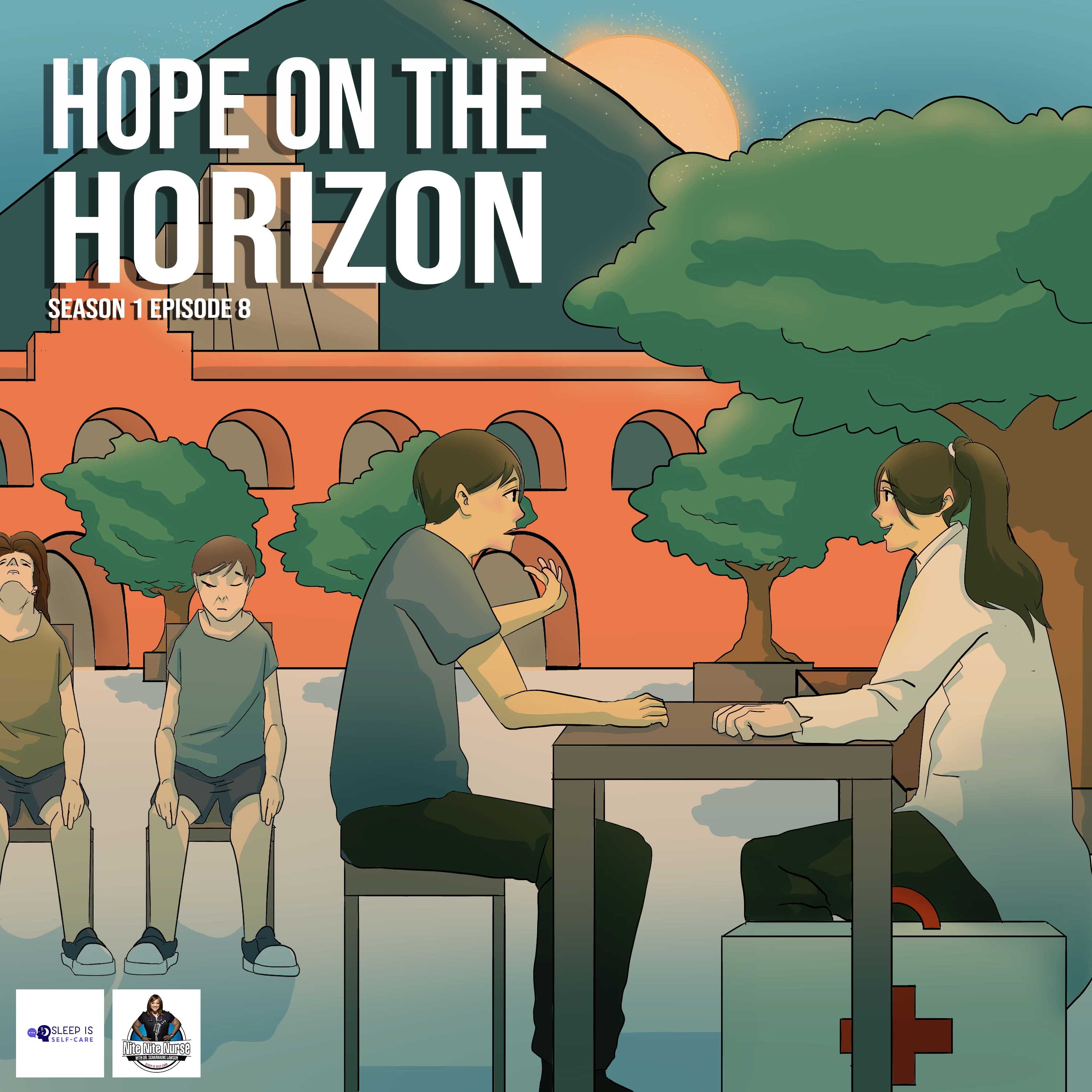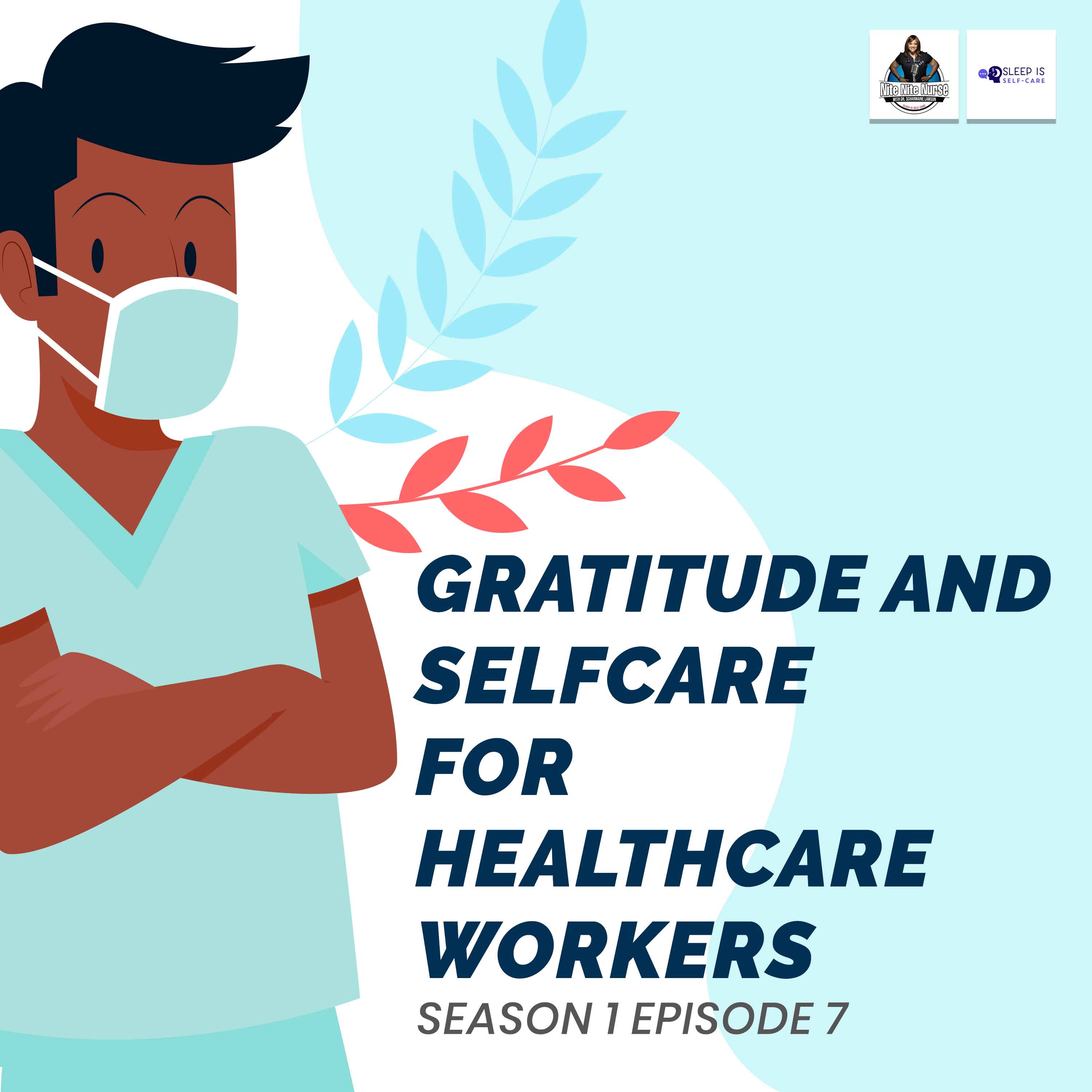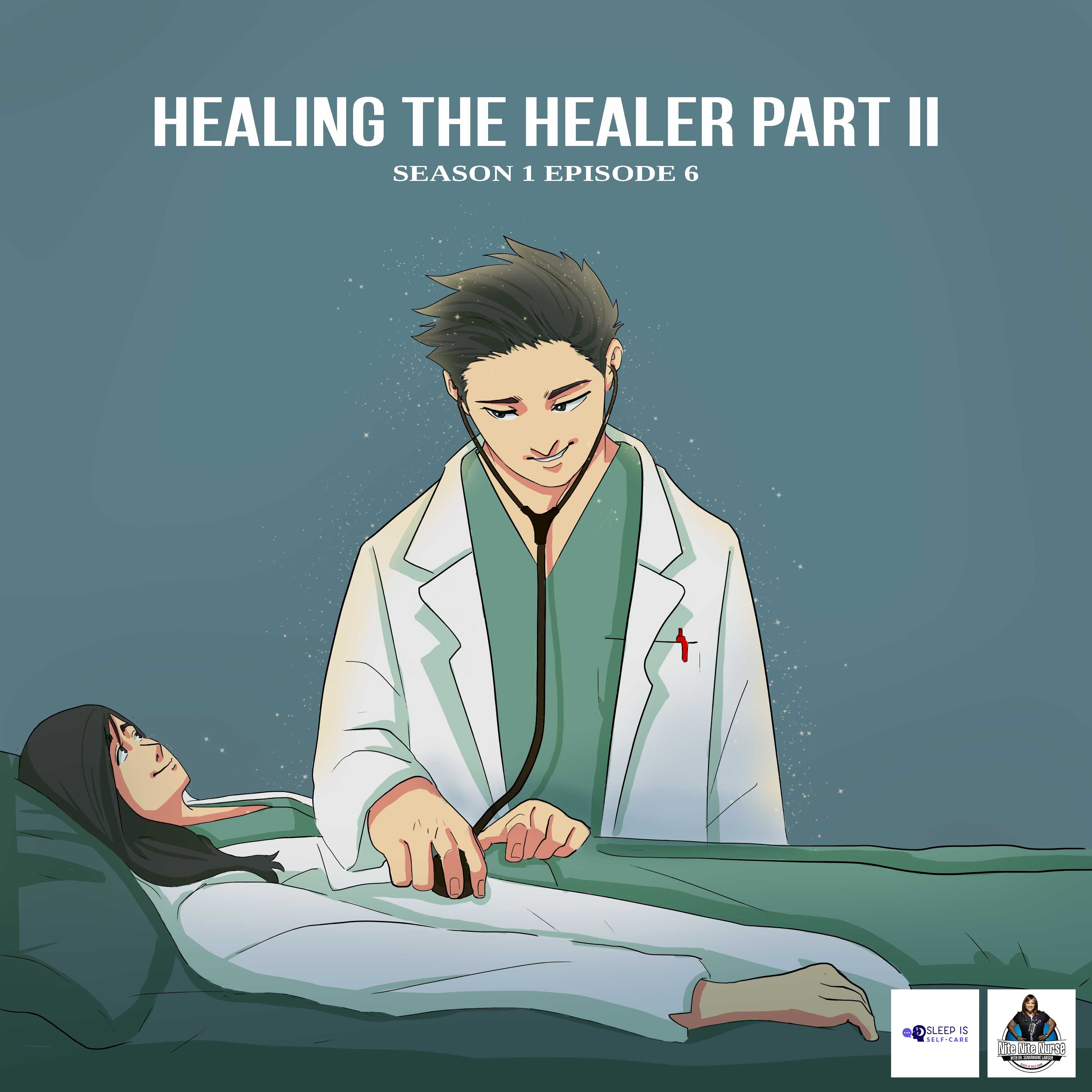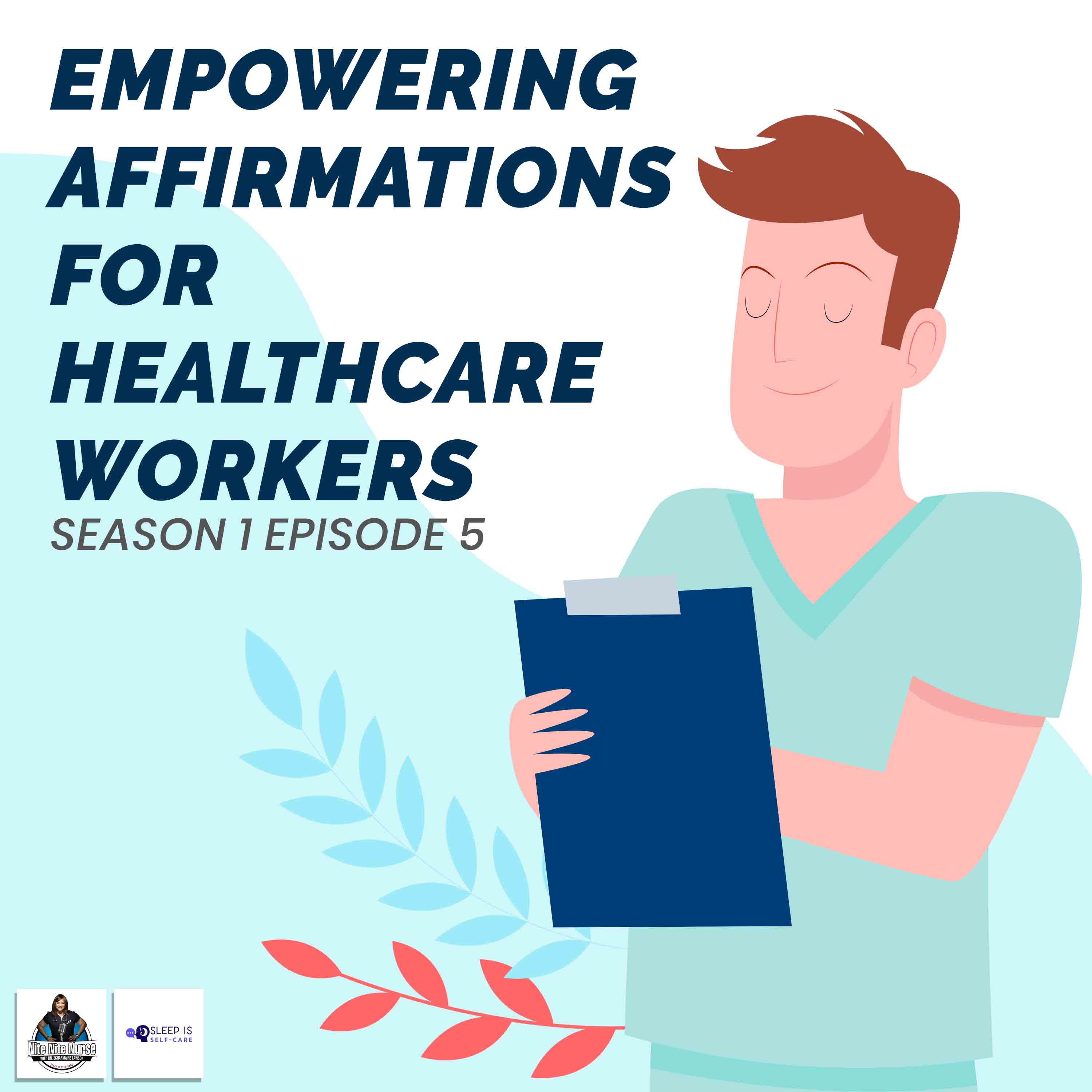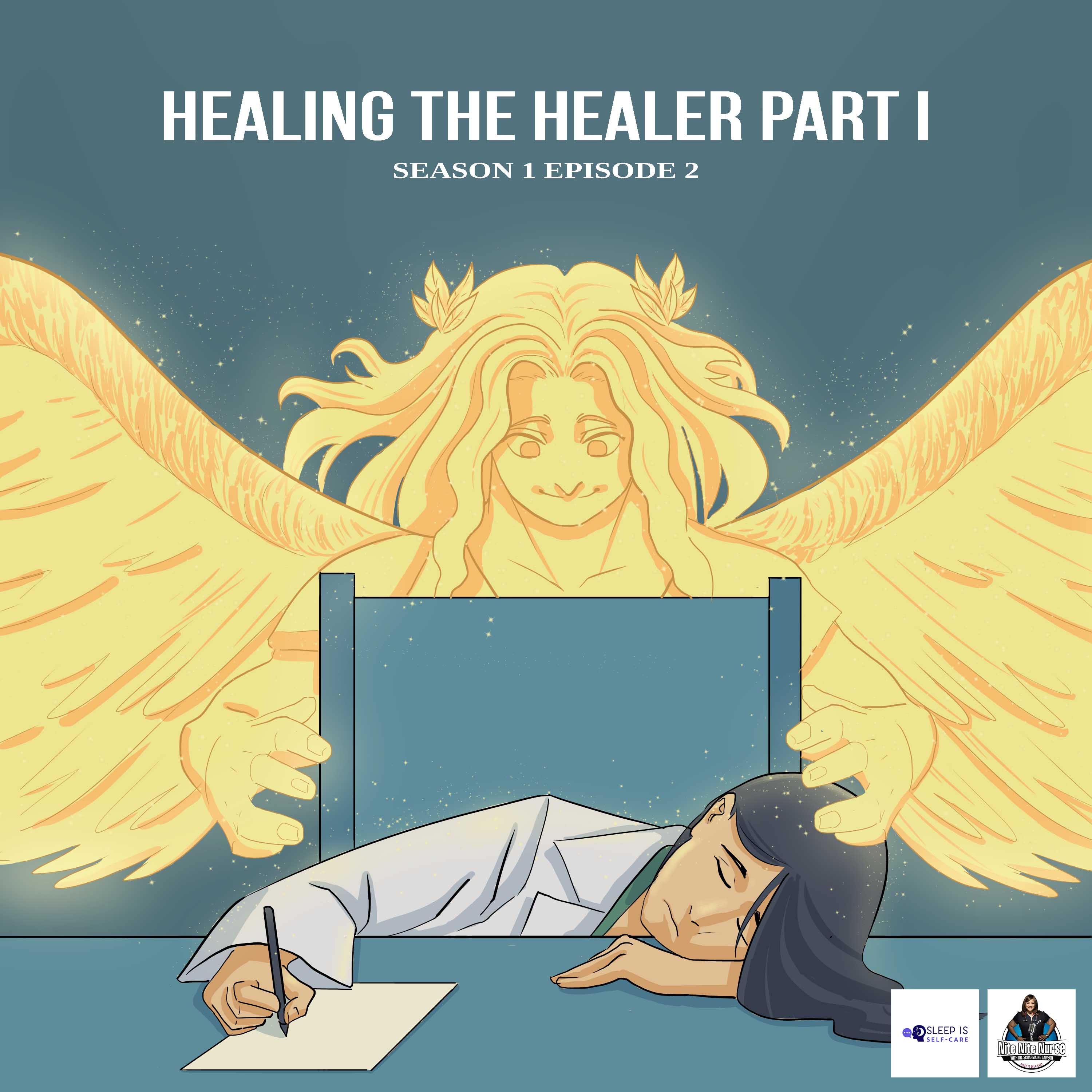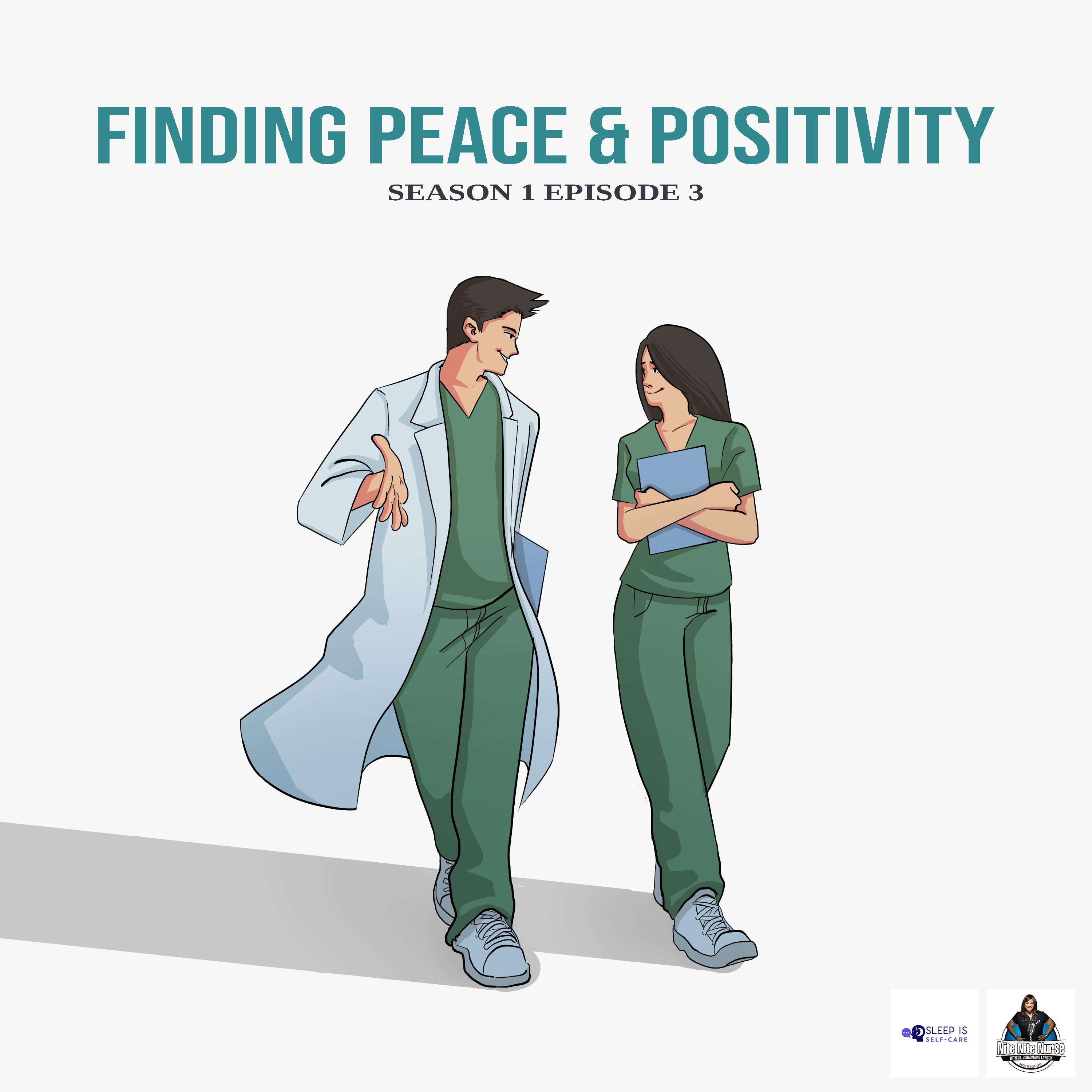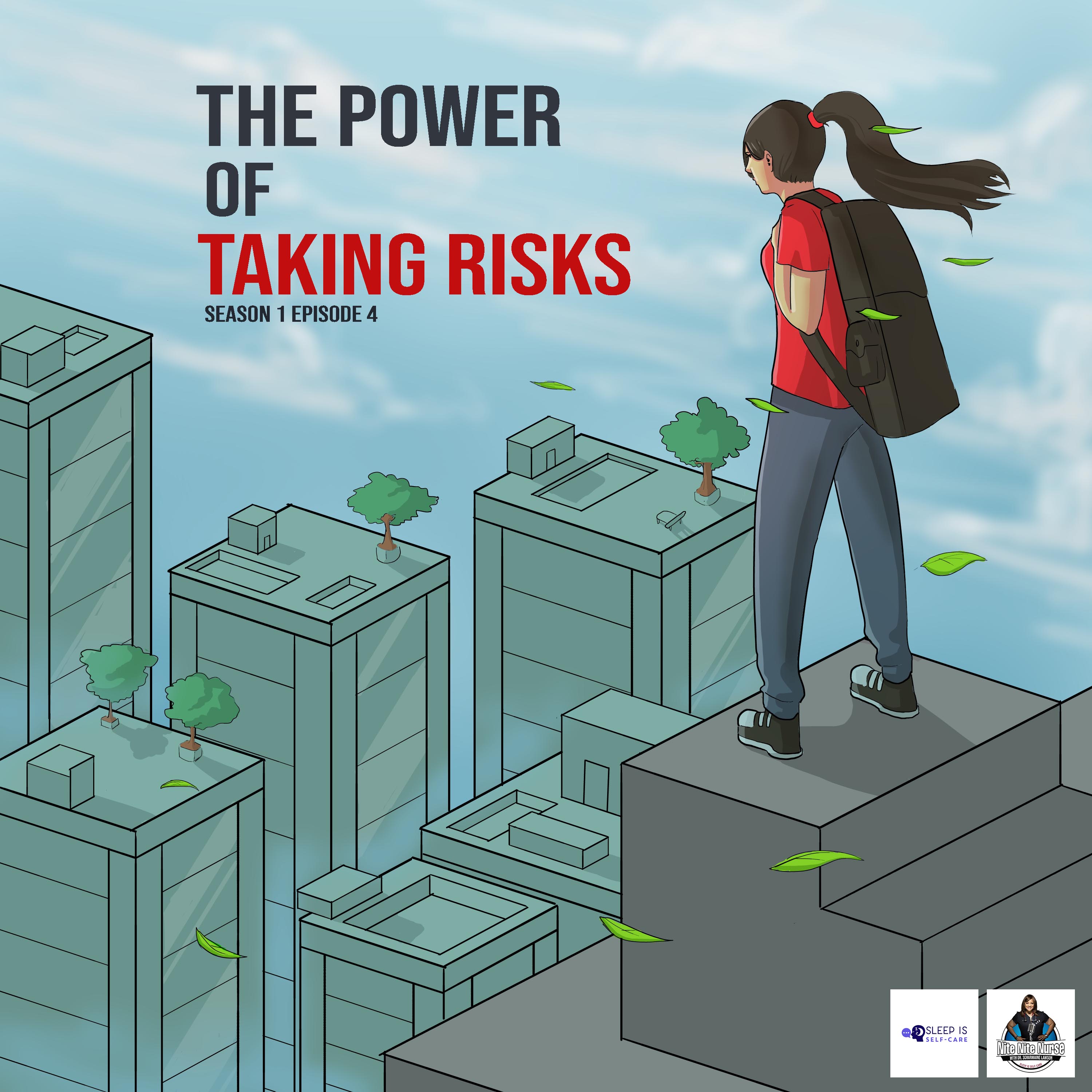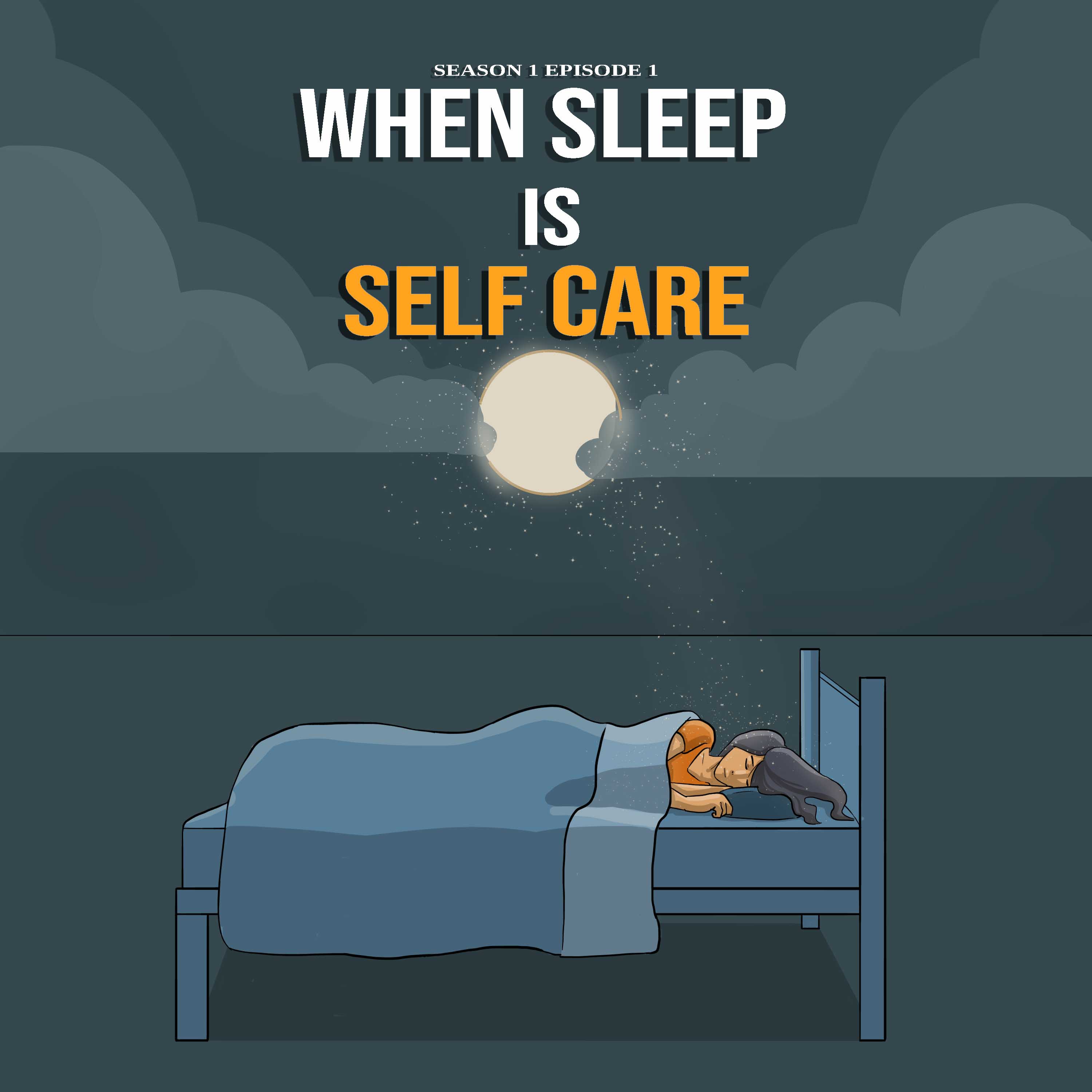S1 Ep 8. Hope On The Horizon
Nite Nite Nurse Podcast Show Notes
Season 1 Episode 9
Description: Dr. Grace Robineaux, a psychiatrist in a Chicago hospital, is struggling with the demands of her job and lack of self-care. In search of relief, she grabs the opportunity to go on a two-month-long mission to provide mental health care in rural Guatemala. The story follows her journey towards this new chapter in her life in which she discovers the power of hope.
Psychiatrist Dr. Grace Robineaux was usually a ray of sunshine in the psychiatric unit of the Chicago hospital where she worked. Throughout the five days a week, she had a knack of spreading smiles to all her colleagues and patients. It was in her calm soothing voice and in her compassionate demeanor that created a safe and trusting space for her patients.
Her patients often remarked on her ability to listen without judgment that made them feel heard and valued. In Grace’s eyes, her role as a psychiatrist went beyond diagnosing, offering therapy and medication management. She believed in collaborating with the patient to develop more personalized treatment plans that addressed their needs. Her colleagues admired this willingness of hers to go above and beyond.
Driven by her commitment to improving the psychiatric approach at her hospital, Grace spent hours researching new therapies and treatments, and attended conferences, seminars and workshops. She was constantly learning and becoming certified in new therapies, eager to break away from traditional methods. The more she observed positive outcomes in her patients, the more motivated she became to explore more innovative practices.
As much as she was an advocate for better mental wellness and loved her job, she was aware that the demands of her job were taking a toll on her own mental health when the ward began to lack the sufficient staff to deal with the number of inpatients admitted. In order to be the best psychiatrist, she could be, she needed to prioritize her own well-being. However, she was finding less and less time for self-care.
Soon, she was spreading herself thin. Her days were filled with new challenges, and she often found herself working longer hours than usual in the psychiatric unit, caught in an endless cycle of back-to-back appointments and paperwork. The fluorescent lights and sterile smell of the ward only added to the sense of fatigue she felt at the end of each day. However, with the shortage of staff, she had little choice but to continue pushing herself to her limits.
Despite her best efforts, Grace often felt as though she was barely keeping her head above water.
Due to the limited time, she had for stepping outside the psychiatric ward, Grace found it difficult to keep track of time. Was it day or night outside? She often wondered. Without the cues of daylight and darkness, her body’s natural circadian rhythm transitioned into a state of disorientation. Many nights she struggled to fall asleep, despite feeling exhausted from the long hours she put in at the hospital.
Grace longed for the fresh air, the natural light, and the warmth of the sun on her skin; the simpler things in life that she was used to as a small Midwest town girl. There was not much sun in Chicago to see anyway before her 7 am shifts, so she couldn’t really reap the benefits of the outside world. The hectic schedule left Grace looking forward to the weekends more than ever.
It was during one of these weekends that she was checking her overdue emails and one of them caught her eye. Grace’s curiosity was piqued by the subject line “Give hope to those who need it in Guatemala: Join a Project HOPE mission.” So, she clicked on it.
As she read on, she learned that Project HOPE was hiring medical workers for a two-month-long mission to provide mental health care to small rural areas in Guatemala. The invitation email shed light on the high incidence of PTSD and substance abuse in these areas, which were aggravated by a lack of access to adequate mental health care.
Intrigued, Grace discovered that the mission that she could apply for would involve working with local communities to develop sustainable mental health programs. A sense of excitement and purpose washed over her as she realized that this was an opportunity that the Universe had placed for her to make a real difference in another part of the world.
Without hesitation, Grace decided to take a leap of faith and sign up for the mission. She reminded herself that this could be the push she needed to feel at ease with her job again, and if she didn’t seize this chance, she might regret it later. Grace left the rest up to fate, knowing that whatever happened, it was meant to be.
Fate must have been on her side because a week after Grace submitted her application, she received an acceptance email. That same week, she obtained approval from her department head. Everything seemed to click in place. With her acceptance and approval in hand, Grace decided to have her duties covered during her absence. She could only leave with the peace of mind of knowing that her patients were in good hands.
Grace was bursting with excitement as the day of her departure drew closer. During her last few days of work she walked up and down hospital corridors with a spring in her step. The prospect of helping those in dire and precarious situations, as well as immersing herself in a new culture, filled her with a renewed sense of direction in her life.
She would spend her free time preparing herself for the new way of life ahead of her, and even learning Spanish! This was going to be the beginning of a new chapter in her life, and she couldn’t wait to see where this journey would take her.
It wasn’t long until the much-awaited big day finally arrived. After having felt trapped inside her hospital for so long and acknowledging the fact she had never left the States in her life, Grace felt a rush of child-like euphoria and nervousness before she was about to leave for Guatemala.
It was a long journey to Guatemala City, but the hours of waiting were worth it the moment she stepped out of the airport. As she traveled deeper into the countryside towards her destination, Grace was captivated by the vibrant colors of the stunning landscapes, every sight and sound a world away from the familiar Midwest town she grew up in.
She took a deep breath in the warm humid air before she whispered to herself this one self-affirmation “I am ready for the challenges that lay ahead”.
In the days that followed, Grace was thrilled to meet the other medical professionals who had come from all over the world to work on this project HOPE mission, and she quickly became friends with them. They were a diverse group of licensed professionals with different backgrounds, experiences, and skills but they all shared the same passion: to help so many helpless villagers overcome the traumatic experiences.
The diversity of her colleagues meant that she could learn from their different perspectives and approaches to work. They had different ways of overcoming the challenges they faced, such as the stigma surrounding mental health, the limited access to medical resources and the language barrier. So Grace often found sources of inspiration in their stories and the tips they would exchange, bringing her to develop a fresh perspective on her own role as a mental health care provider.
Thanks to her colleagues, she learned some more Spanish so she could be as prepared as possible when communicating with the locals. And not less important were the daily meetings Grace and her colleagues would arrange to discuss all the ways they could improve the program ahead.
Despite the unfamiliarity of her surroundings, Dr. Grace Wilson adapted to her new role, never losing sight of her altruistic goals. The makeshift clinic she was working in during the mission was built outdoors, surrounded by lush greenery and flowers. The primitive conditions of the place meant that she had to think outside the box and be resourceful with her treatment choices.
Although it lacked proper infrastructure and amenities, Grace found the outdoor setting to be refreshing and invigorating. The exposure to the warm sun and a constant breeze was a welcome change from the hospital setting. Being closer to nature renewed her energy levels, which helped her feel more connected to the patients she was serving.
As Grace began her work in the rural communities in Guatemala, she couldn’t help but notice the strength and resilience of the local people despite the poverty and lack of funding. There was a sense of community and belonging she saw nowhere else, and without the medical resources in place, many of them saw music, dance and art as forms of healing.
However, Grace was aware of the palpable intergenerational trauma and suffering among the people, particularly in relation to the civil war that had devoured their country for over three decades. The civil war and the human rights abuses left behind deep emotional scars. The indigenous communities were also hard hit, with many suffering from forced displacement, discrimination, and violence.
Grace saw that the damage and trauma made people also resort to violence and drug addictions. The stigmatization of mental illness also meant that people interiorized their wounds. It opened her eyes to how widespread this problem actually was in the rural communities, and it was a reality shock she was ready to assimilate.
After all the preventative effort, the language barrier ended up being a significant challenge for Grace, especially when many of her assigned patients only spoke one of the many indigenous languages. But Grace was determined to communicate with her patients and connect with them on a deeper level than what was expected. Listening to their stories was important to her, so she made sure she always had a translator by her side.
The resilience and warmth of her patients energized her. These were patients who had faced challenges that were unimaginable to her and had the odds stacked against them for most of their lives. From teenagers to elderly patients, there was not one of them whose life story didn’t leave Grace astounded. It made her really think how minor and insignificant her issues back home really were.
One patient in particular, a middle-aged woman called Isabela, inspired Grace the most. Isabela had survived a brutal attack during the war and endured years of flashbacks, nightmares, and fresh memories of violence. All these years of suffering the aftermath and surviving through it without the help of antidepressants or mood stabilizers made Grace think that the answer lay elsewhere, far from prescriptions or clinical intervention.
What Grace noticed at first was that Isabela appeared apprehensive and guarded, so it wasn’t an easy task to treat her PTSD. But through the medium of conversation, Isabela began to open up. By complementing the conversations with an uplifting smile and an empathetic body language, Grace observed how Isabela responded positively and mirrored Grace’s smiles.
Regardless of the different languages that each spoke, the true language that existed between them was empathy. All that any trauma sufferer wanted was to be understood. And all that Grace had to do was establish a trusting relationship with Isabela, listening to her stories like a true friend.
The stigma around feelings of anxiety and depression was visible in the way Isabela held back her emotions and skirted around questions. But Grace made sure to smile, hold her hand and make strong eye contact whenever Isabela tried to open up about her triggers; it was Grace’s way of normalizing the act of talking as a form of healing.
Fortunately, the more Isabela made that association, the less panic she felt when she made any small reference to her attack. Grace was filled with pride when she managed to lighten the associated fear.
Isabela was revealing an emotional transformation in response to Grace’s efforts. One day during a particularly emotional session, Isabela shared a quote that had helped her through the darkest moments. “La esperanza es el motor que nos mueve hacia adelante” was how Grace heard it for the first time. It translated to “Hope is the engine that moves us forward.”
Those words stuck with Grace long after their session had ended. Hope was really a driving force, even in the face of mental health disturbances. It made her reconsider the healing capacities of the human mind. How important the ingrained feeling of hope was in getting through the unwanted symptoms of a traumatic event. By gripping on a morsel of hope, the locals believed that suffering was just a dark tunnel, a phase, on the other side of which they would find a better reality.
Upon reflection, Grace saw that hope was not just an abstract notion, but rather a healthy and safe coping mechanism regardless of the affliction. It was closely linked to resilience and bouncing back from traumatic experiences.
From that day forward, Dr. Grace Robineaux considered centering her therapy sessions around instilling hope in her patients, to steer away from the one-size-fits-all approach that most psychiatrists relied on. She wanted to test the approach with her patients back in Chicago. It would mean guiding patients to identify the sources of hope in their lives, whether it be a supportive relationship, a hobby or passion, or a personal belief system. Grace wanted to encourage patients to focus on these sources of hope and draw strength from them.
But it wasn’t just a professional lesson, it was also a personal one too. She had to find her own source of hope in her life within her struggle through the constant hustle and bustle of the Chicago city life, the hospital overwork and the burn-out.
And she was more than sure that her source of hope was being part of these medical missions, spreading hope, one patient at a time.
Narrator: Dr. Scharmaine Lawson
Writer: L. Christine
Cover Artist: Eka Mahardika

